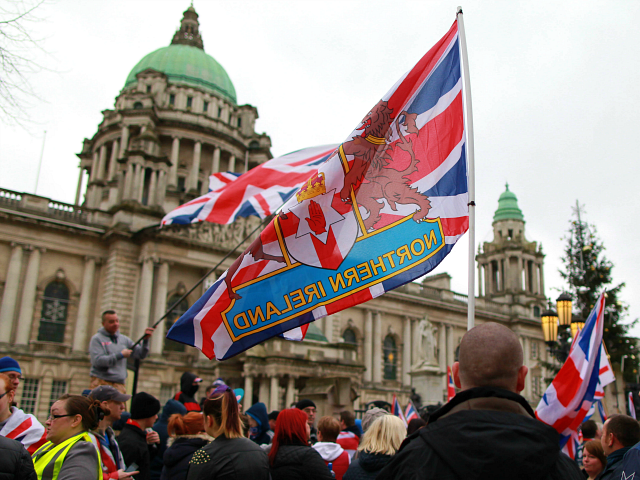The High Court of Northern Ireland has ruled that a no-deal Brexit would not breach the Good Friday Agreement, which supports the peace process in the British province.
Northern Ireland, known colloquially as Ulster, was for decades wracked with violence perpetrated by terrorists claiming to be fighting on behalf of the minority of the population which supports leaving the United Kingdom and uniting with the Republic of Ireland, and to a lesser extent by loyalist paramilitaries.
This conflict, known as The Troubles, was significantly wound down by the Good Friday Agreement, or Belfast Agreement, signed in the 1990s, which resulted in the Provisional Irish Republican Army (IRA) supposedly disarming in exchange for a number of concessions from the British government, such as freeing convicted terrorists.
Campaigners seeking to block a No Deal Brexit went to court claiming the possible introduction of a customs border between Northern Ireland and the Republic of Ireland would break the terms of the Belfast Agreement, but Lord Justice Bernard McCloskey has now ruled that this is not the case.
Lord Justice McCloskey in the High Court today pointing out there is nothing in the Belfast Agreement to require EU Membership (or regulatory alignment or customs union membership for that matter). Should be uncontentious (other than on Twitter!) pic.twitter.com/ZaoL90gim4
— Richard Bullick (@RichardBullick1) September 12, 2019
“[T]he Belfast Agreement… was [not] predicated on the basis that UK membership of the EU would continue forever,” the judge explained, nor could the agreement be “construed as requiring a customs Union or continued regulatory alignment.”
Indeed, there is already a so-called “hard” border between Northern Ireland and the Republic of Ireland with respect to VAT rates, currency, and excise duties, despite their shared membership of the European Union.
Where is the coverage of this @BBCNewsnight @SkyNewsBreak https://t.co/J21IPFlvjB
— Kate Hoey (@KateHoeyMP) September 12, 2019
Kate Hoey MP, a popular Brexiteer and one of only a handful of politicians in Labour’s parliamentary party to still carry the torch for its once-proud tradition of euroscepticm, noticed that the Northern Irish ruling had received relatively little mainstream media coverage compared to another by Scotland’s Court of Session, which had ruled (on appeal) that Boris Johnson had asked the Queen to prorogue Parliament unlawfully.
“Interesting not a word on the main @BBCNews about this yet wall to wall coverage of Scottish court decision,” she observed wryly.
“Perhaps journalists prefer the Scottish ruling,” she suggested, adding the hastag “#bias”.
The Court of Session had initially ruled that the decision to prorogue was not justiciable before the appeal to its Inner House, in line with a decision of the High Court of England that prorogation was a matter of high politics and not the courts.
The High Court in Northern Ireland opted not to offer its own view on prorogation, as the Scottish and English cases are already due to be settled in the Supreme Court of the United Kingdom.
The Supreme Court would be wise to accept that prorogation is too political for judges.
Clive Thorne, Vice-Chairman of Lawyers for Britain.https://t.co/CAPhPfiHJX
— Lawyers For Britain (@lawyers4britain) September 12, 2019

COMMENTS
Please let us know if you're having issues with commenting.